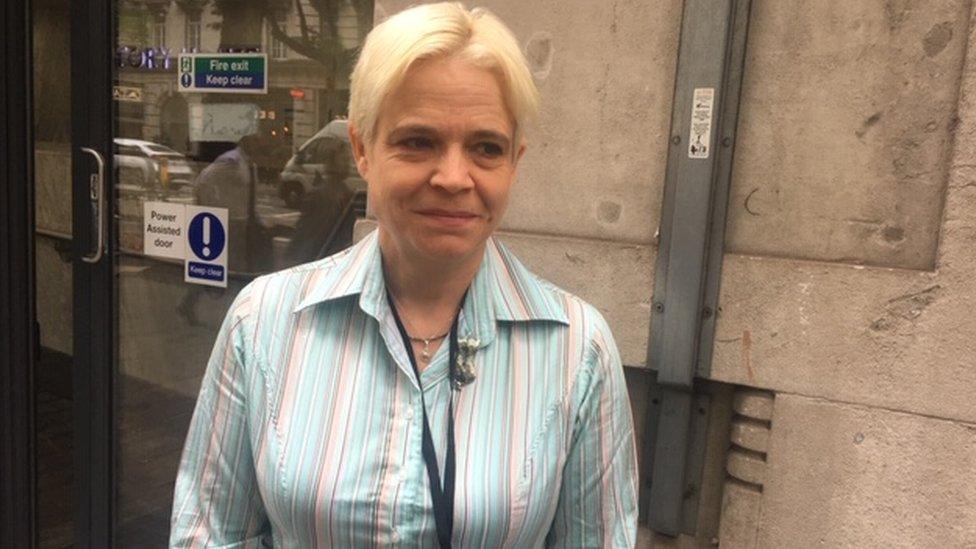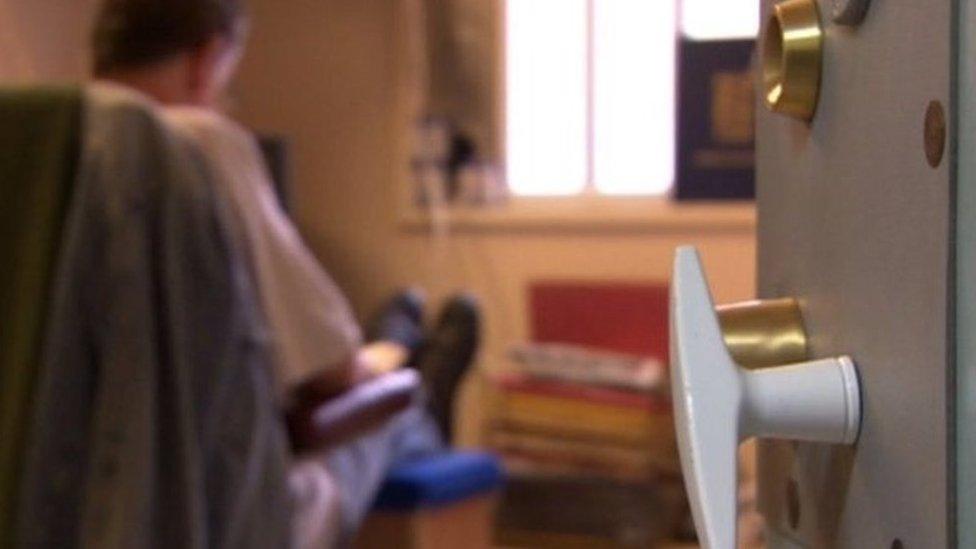MoJ denies sex offender research 'cover-up'
- Published

Kathryn Hopkins told an employment tribunal she was "bullied" by the Ministry of Justice after producing her report
The government has denied covering up research that found a treatment programme for sex offenders in England and Wales increased reoffending.
Kathryn Hopkins's study was given to officials in 2012, but the flagship scheme was only scrapped in 2017.
She has told an employment tribunal that she was "bullied" by the Ministry of Justice after producing the report.
But the MoJ denied trying to cover up the findings, saying it would not "waste" money on ineffective treatment.
The MoJ commissioned Ms Hopkins, a senior researcher in its analytics unit, to study the effects of the Sex Offender Treatment Programme, which had been used since 2000.
The programme involved group sessions with prisoners and those serving community sentences, as well as cognitive behavioural therapy, to increase the offenders' motivation to steer clear of crime.
The initial results, in February 2012, suggested prisoners who took part were more likely to reoffend than those who had not.
However, the programme was allowed to continue until March 2017 while Ms Hopkins's study was reviewed, checked and reworked before it was published three months later.
The Central London Employment Tribunal has been considering Ms Hopkins's claims that she was "sidelined" after presenting her findings - and unfairly left off the list of research authors - for suggesting that "vested interests" did not want the study to be made public.
Paul Skinner, representing the MoJ, said there had been no attempt to prevent or slow down the release of the results.
"The Ministry of Justice and the secretary of state wouldn't want to be giving people treatment that they thought didn't work," he said at the end of the seven-day hearing.
"It's a complete waste of money."
'Asking stupid questions'
Earlier, the tribunal heard that prison and probation officials at the MoJ had expressed concerns about the methods used in Ms Hopkins's study and wanted the research to stop.
Rebecca Endean, the department's then director of analytical services, said she had refused to do that but had agreed to work with officials to address the problems.
Ms Hopkins, who is representing herself at the hearing, believed that amounted to an attempt to "fix" the results so the treatment scheme would not be seen as a failure.
She also claimed Ms Endean "bullied" her.
Ms Endean denied the allegations, saying that, as it was her responsibility to present the findings to ministers, the methods had to be "robust", even if that involved "asking stupid questions and making everyone's lives miserable".
"I wanted to be absolutely sure we hadn't made a mistake," she said.

Treatment programmes for sex offenders
Sex offenders can receive therapy in prison and in the community
Core programme devised in 1992 - but revised over years as evidence of effectiveness complex
Main SOTP scheme rolled out to more prisons in 2000s - but now found to have failed
Two new schemes have been accredited as replacements, having been devised from latest research

However, the tribunal was told that it led to a breakdown in relations with Ms Hopkins who complained that in one meeting Ms Endean had shouted at her: "Wipe the smile off your face."
Ms Endean denied using the phrase or shouting but accepted that Ms Hopkins had felt "intimidated".
An internal grievance investigation was conducted into the way managers had handled the analyst's claims of "bullying" and the stress-related mental health problems that she said it had caused.
The inquiry found against her but in a witness statement submitted to the tribunal, a former senior MoJ official acknowledged the department's shortcomings.
Osama Rahman, who headed the analytics unit between 2014 and 2018, said it was clear Ms Hopkins's mental health had suffered.
"Given how [she] had felt, including claiming that she had felt suicidal, I believed that we had failed her," Mr Rahman said.
A ruling on the case is expected in the next few weeks.
- Published12 June 2019

- Published30 June 2017
- Published24 January 2019
